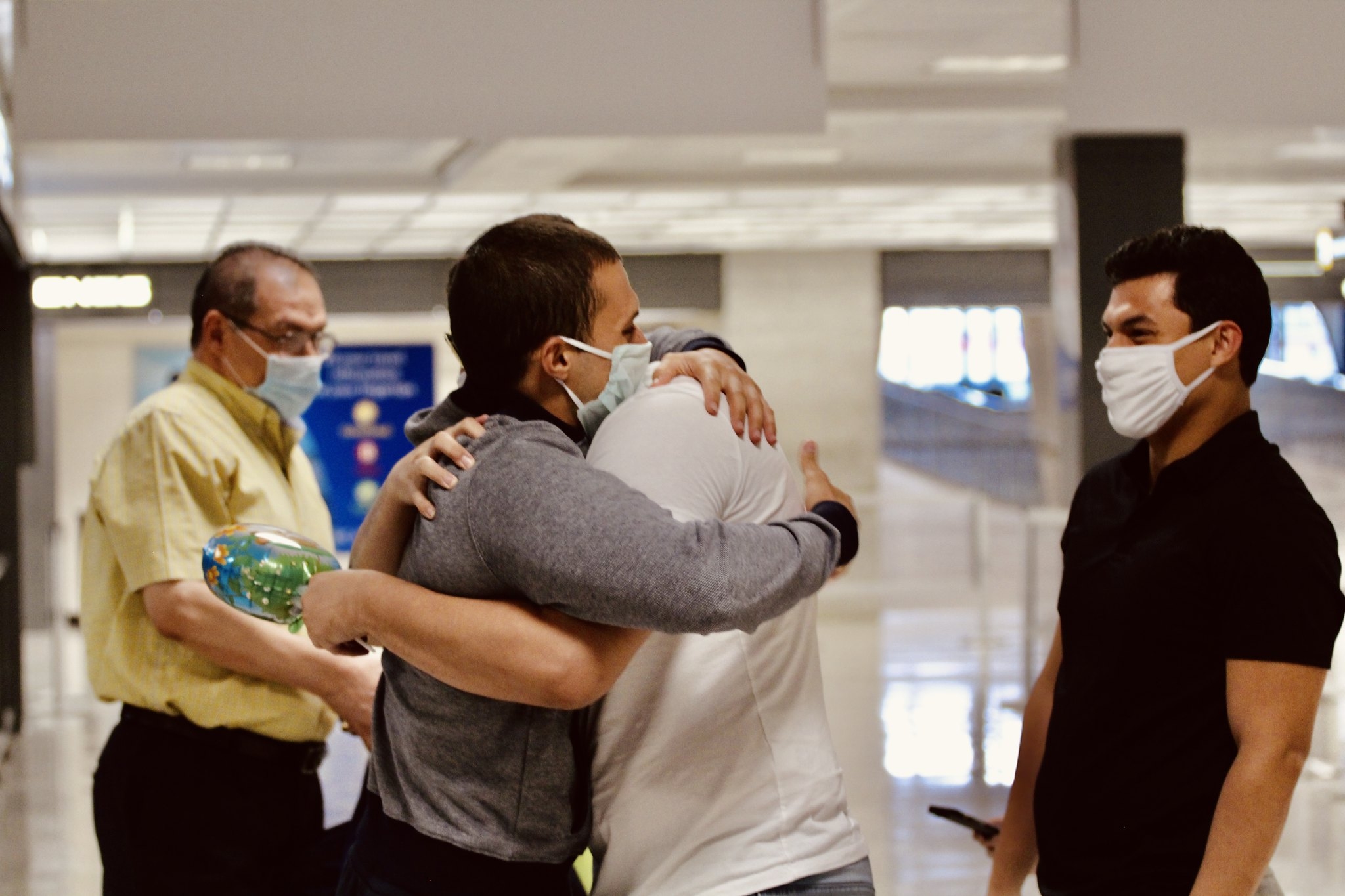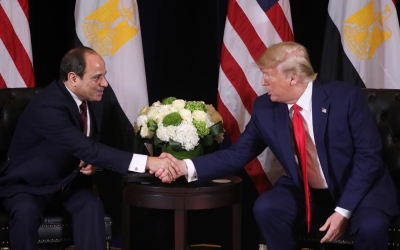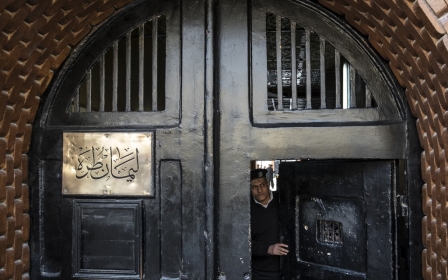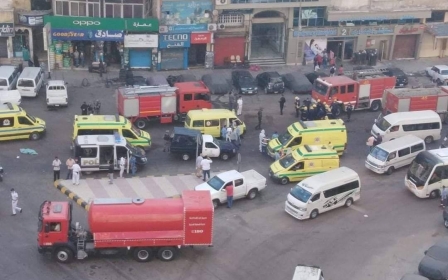Egypt frees American student who protested for release of political prisoners

An American medical student who was held without trial in an Egyptian prison for more than 400 days has been freed and returned to the United States, an advocacy group for political prisoners said in a statement on Monday.
The Freedom Initiative said that Mohamed Amashah, who was arrested in April 2019 after he held up a sign in Cairo's Tahrir Square reading "freedom for all prisoners", arrived at Dulles International Airport airport near Washington on Sunday before returning to his home in New Jersey.
Mohamed Soltan, a US citizen who was imprisoned by Egypt and works with the Freedom Initiative, said Amashah's friends and supporters were "ecstatic" about his release.
'His release is welcomed progress and a step forward in the right direction'
- statement from the Freedom Initiative
"His release is welcomed progress and a step forward in the right direction that we hope is built on for the release of other political prisoners in Egypt, including American citizens," the group said in a statement.
According to the New York Times, Amashah, who suffers from an autoimmune disease and asthma, had been awaiting trial for over a year on charges of misusing social media and assisting a terrorist group.
New MEE newsletter: Jerusalem Dispatch
Sign up to get the latest insights and analysis on Israel-Palestine, alongside Turkey Unpacked and other MEE newsletters
"We welcome the release of US citizen Mohamed Amashah from Egyptian custody, and thank Egypt for its cooperation in his repatriation," a State Department spokesperson told MEE on Monday.
Rights groups and US legislators had repeatedly called for Amashah's release, citing his health.
60,000 political prisoners
The Egyptian government, which has imprisoned around 60,000 dissidents since President Abdel Fattah el-Sisi seized power in a 2013 coup, released Reem Desouky, another American citizen, in May.
Desouky, an Egyptian-American art teacher who lives in Pennsylvania, was detained for 301 days over her social media posts critical of Sisi's government.
Last week, Egyptian authorities also freed Canadian national Yasser Ahmed Albaz, who had been detained for 16 months.
Early in 2020, Cairo faced outrage after the death of Moustafa Kassem, a 64-year-old dual Egyptian-American citizen who had been detained since 2013 in a post-coup crackdown on perceived opposition activists.
Kassem, who repeatedly insisted that he was not involved in any political activities, had pleaded with the US government to secure his release before embarking on a prolonged hunger strike.
In January, top US diplomat David Schenker described Kassem's death in Egyptian custody as "needless, tragic and avoidable".
Exploiting the pandemic
Members of the Donald Trump administration, including Vice President Mike Pence, have in the past publicly raised the issue of American political prisoners in Egypt.
But Trump himself has lavished praise on Sisi every time the two leaders have met. Last year, the US president referred to his Egyptian counterpart as "my favourite dictator" after a bilateral meeting in France, according to a Wall Street Journal report.
The Trump administration and US legislators have also resisted calls for imposing conditions on US aid to Egypt in order to push Cairo to improve its human rights record.
Egypt receives $1.3bn in US assistance annually.
Despite calls for freeing detainees to prevent the spread of the coronavirus in prisons, Human Rights Watch (HRW) has accused Egyptian authorities of using the virus to further tighten its grip on political freedoms.
"President al-Sisi's government is using the pandemic to expand, not reform, Egypt's abusive Emergency Law," Joe Stork, deputy Middle East and North Africa director at HRW, said in a statement in May.
"Egyptian authorities should address real public health concerns without putting in place additional tools of repression."
Middle East Eye delivers independent and unrivalled coverage and analysis of the Middle East, North Africa and beyond. To learn more about republishing this content and the associated fees, please fill out this form. More about MEE can be found here.





